Discover With Good Reason
With Good Reason

With Good Reason
Author: With Good Reason
Subscribed: 201Played: 7,250Subscribe
Share
© All rights reserved
Description
Each week on With Good Reason we explore a world of ideas with leading scholars in literature, history, science, philosophy, and the arts. With Good Reason is created by Virginia Humanities and the Virginia Higher Education Broadcasting Consortium.
417 Episodes
Reverse
Into the Sun is a new musical featuring the poems of British war poets and soldiers who were killed in World War I. Co-author Mike Gubser (James Madison University) says the title is from Wilfred Owen’s 1918 poem Futility, where soldiers try to awaken their fallen comrade with the warmth of the sun.
Move him into the sun. Gently its touch awoke him once,
At home, whispering of fields unsown.
Always it woke him, even in France,
Until this morning and this snow.
Later in the show: The 1918 Battle of Megiddo was the world’s last great cavalry charge and a decisive British victory. Eric Osborne (Virginia Military Institute) says the victory led to the collapse of the Ottoman Empire and paved the way for the future state of Israel in Palestinian territories. Plus: In his forthcoming book, “Unwilling Doughboys: The U.S. Army’s Foreign-born Conscripts in World War I, Alex Paul (Virginia Military Institute) shatters the myth that during WWI, most immigrants in the United States submissively complied with the conscription practices of many local draft boards.
Legacies of WWII by With Good Reason
Armed with a newly-talking cinema and trying to survive The Great Depression, Universal Studios developed a new genre – horror. For twenty-two weeks, crews filmed Dracula. And for six of those weeks on a shoestring budget of $66,000, they shot Drácula at night. Antonio Barrenechea (University of Mary Washington) says that despite this unbalanced relationship with Hollywood, this inter-American production contributed to a national cinema throughout the Western Hemisphere in Mexico, Brazil, Peru and beyond. Also: Each generation has its own toxicant. The children of The Great Depression had asbestos. Their children were rattled with lead exposure. And their children are littered with microplastics. Aaron Reuben (University of Virginia) says over 150 million Gen X’ers have mental health issues because of their exposure to lead. And here’s the real fright: there’s no cure!
Later in the show: We’re all gonna die. That’s one thing that life promises us all. After helping his parents settle their estate and make funeral arrangements, Willy Donaldson (Christopher Newport University) realized that they needed to talk more about death. Way more. Did they want to be cremated or buried? Did they want a big funeral or something more intimate? He found it easier to start with the negative. What don’t you want at the end of your life? Willy’s book is Estimated Time of Departure.
In a walk through the forest, an Appalachian landowner and biologist points out dozens of species he and his family sustainably harvest for meals. From sycamore trees–whose syrup tastes like butterscotch–to Appalachian wasabi–a spicy root they use in their spice blends–Ryan Huish (University of Virginia College at Wise) is teaching a new generation plant identification and sustainable harvesting practices.
Later in the show: For hikers seeking self-discovery on the Appalachian Trail, their cell phones are both a tool and a tether. Scott McCrickard (Virginia Tech) studies how hikers' use of cellphones transforms the experience of the trail. Also: Students in Jacob Barneys (Virginia Tech) invasive species class get to eat what they study. They cook up creative dishes that include blue catfish, wild boar, chickweeds, bamboo, kudzu, autumn olive, and wineberries.
The red colobus monkey is one of the most endangered primates in the world. Found in West, East, and Central Africa, the once thriving species has been decimated by over-hunting. Josh Linder (James Madison University) has devoted his career to studying and conserving these peaceful primates. Plus: Francesco Ferretti (Virginia Tech) led an expedition to be the first to ever tag endangered great white sharks in the Mediterranean. While he and his crew didn’t end up tagging any sharks, they uncovered exciting new evidence of great white activity in the water.
Later in the show: Only a few decades ago, the bald eagle was on the brink of extinction. Bryan Watts (William & Mary) has been monitoring the bald eagle population in the Chesapeake Bay for 30 years. He says the bald eagle is one of the biggest success stories in the history of conservation. And: In the small island-nation of Sri Lanka, elephants are sacred animals. But Sujan Henkanaththegedara (Longwood University) says the rich and powerful are illegally capturing wild and critically endangered elephants to have as symbols of wealth.
For little girls, princess culture is everywhere. Carlee Bradbury says it’s been that way for hundreds and hundreds of years. And: darlene anita scott collages and poems explore Black girlhood and the beautiful resistance Black girls and women engage in everyday.
Later in the show: In Barbie Magical Fashion, you can design your very own cover model outfit. Lady Popular lets you compete in a fashion battle. Fashion Doll Makeover starts with skincare–facials, pore strips, acne treatments–before you move to the dress up challenge. Kelsey Cummings says all these games targeted at girls are training them on a very specific kind of womanhood.
America has a problem. There’s a nursing shortage. And it's not for lack of hopeful nurses. There's not enough clinical space! The Mary Morton Parsons Clinical Simulation Learning Center (CSLC) at University of Virginia School of Nursing is helping to alleviate that bottleneck with simulations. They get to experience Rob Craig as their first difficult patient in a range of simulations. And: Veterans Affairs hospitals are one of the largest medical providers in the nation. And recently, Sheila Ward introduced Virginia veterans to African diasporic dance and drumming.
Later in the show: Teresa Salgado and her colleagues found that tens of thousands of Virginians from Hampton Roads to Wise County live far away from pharmacies. Researchers are calling these places “pharmacy deserts.” Salgado and her colleagues hope that their findings will support policy makers in creating incentives to establish pharmacies in underserved areas.
It’s football season, baby! And that means big upsets, impossible comebacks, nail biting finishes - plus sports betting ads… lots and lots of sports betting ads. Brendan Dwyer studies how this new era of sports betting is changing how we watch games.
Later in the show: Virginia legalized casino gaming in 2019 and now there are three operational casinos with two more on the way. Barbara Blake says casinos can boost the local economy but they aren’t a golden ticket. Plus: Larry Epplein is the program advisor for Virginia’s first casino management class.
Lafayette was just 19 when he sailed to America from France and fought alongside George Washington in the Revolutionary War. David Marsich says 50 years later the Feenchman toured all 24 states and was greeted by adoring hordes wherever he went. Plus: A Creek Indian was falsely blamed for the brutal slaying of a band of Cherokees just outside Charleston. Josh Piker writes about it in The Four Deaths of Acorn Whistler.
Later in the show: Haiti’s revolution exposed the lie in the Enlightenment values that celebrated universal rights but excluded black people. Julia Gaffield is the author of I Have Avenged America: Jean-Jacques Dessalines and Haiti’s Fight for Freedom.
54f05c20-8f1c-11f0-a36f-63a3d3cf6fc5
dc3612f0-9247-11f0-984f-b10d79862af0
Polar bears are no one’s prey, except for climate change itself. John Whiteman says our human fate is tied up with the fate of the polar bears. And: Birds have an unusual predator. Windows. Karen Powers says that an $8 pack of window decals could be lifesaving.
Later in the show: We’ve all killed a spider or sprayed weeds in the garden. Todd Tupper encourages us to start trying to live humbly and more mindfully with nature.
This week we’re returning to Virginia’s Eastern Shore with Virginia Folklife Director Katy Clune. She explores how newcomers to the Shore are adopting and adapting traditional foodways. From gorditas and Haitian plantains to oysters and fresh jams, we get a closer look at the Eastern Shore’s vibrant food culture.
Later in the show: Daniel Morales digs into the history of Mexican migrant labor in the American food system. And: Tanya Golash-Boza explores the importance of immigrant labor on farms, in production facilities, and in restaurants across the country.
They say around 20% of students in K-12 schools are considered gifted. But identifying giftedness isn’t exactly a precise science. Chandra Floyd breaks down the inequities in gifted education. Plus: Learning to read is one of those magical childhood experiences. Once you figure it out, it’s like a whole new world opens up! Sean McDonald studies literacy in special education. He says outside of cognitive ability, there are other lesser-known cultural and psychological factors that have a big impact on reading comprehension.
Later in the show: Melissa Švigelj taught at a juvenile detention center for four years. She says she was shocked by the oppressive and punitive environment her students faced in the juvenile justice system.
Margot Robbie brought Barbie to life with the 2023 Barbie movie. It was successfully “femvertised” to women and girls across generations. And not only did they go see the movie, but they made sure that they were seen being a part of Barbie’s world. They bought a lot of pink, fast fashion pieces to wear to the theatre and film content with and then, they threw it away. But the problem is that a lot of that fast fashion is plastic. Alexandra Villela says that plastic is forever and the landfill tells the story of that Barbie summer. Plus: Advertising firms are starting to use generative AI to make graphics faster and cheaper. Consumers may soon find themselves wondering what’s even real. But one thing’s for sure: Meg Michelsen says that consumers want the humans in advertisements to be real. Everything else can be fake.
Later in the show: Apple products are the norm now. I have more than I care to admit. And it all began for me in middle school with a G3 iBook. But they were once a counterculture product. Ted Gournelos says that one of the ways that Apple created value for itself was by donating tens of thousands of laptops to public schools in the early 2000s. This created a generation of loyal Apple customers, and parents who had to pay attention to the products their children were begging for.
After the long French and Indian War, British surveyors fanned out to create maps of their new frontier territories so they could better control the unruly colonists. Max Edelson is author of The New Map of Empire. Plus: A spin through early American Cartographic History by Cassandra Farrell. She describes one map created by Captain John Smith and another by the father of Thomas Jefferson.
Later in the show: When Johnny Finn's urban planning students arrive at the campus they often warn each other to stay away from the number streets in the nearby city because those are dangerous. Finn says the "number streets" represent a century of deliberate segregation and redlining that have cost African American middle-class families across America billions in lost wealth.
NIL sent shockwaves through college athletics when it was signed into law in 2021. Now student-athletes could earn money off of their name, image, and likeness. But there weren’t any guide-rails to help student-athletes navigate the new NIL landscape. Enter Kim Whitler. She co-wrote Athlete Brands: How to Benefit from Your Name, Image and Likeness. And: In 2020, Sha’Carri Richardson was barred from representing Team USA at the Tokyo Olympics because she tested positive for marijuana. Jo Morrison says there are many other elite athletes like Richardson who’ve had their reputations tarnished for taking banned substances that have little to no evidence of enhancing performance.
Later in the show: For runners, there’s nothing like the freedom of lacing up your shoes and putting foot to pavement, logging mile after mile in the open air. Sabrina Little studies how running can hone virtues that are beneficial to life outside of sports. Plus: While golf might not be a high-octane contact sport like basketball or football, it’s something you can play throughout your life and even into your later years. Carray Banks is on a mission to generate funding to field both women's and men's golf teams at all HBCUs in the Mid-Eastern Athletic Conference.
George Tzamaras fancies himself as a “connoisseur of fine dad jokes.” I have him rate a few of my own dad jokes as a rite of passage as I start my journey into fatherhood. His new book is called It’s Dad Joke Friday: The Collection (2018-2025). Also: Being a dad is a huge responsibility. And as my wife and I get closer to our due date, I’m starting to feel the nerves kicking in. I sat down with Santo Coleman to talk about the power of fatherhood and share my own anxieties about being a first-time dad. And: Back in the day, the stereotypical dad would come home from work and plop themselves on the couch, while the mom toiled with dinner and the kids. But now fathers are more involved in the family than ever before. Scott Grether studies the household division of labor in hetero couples. Spoiler alert: us guys still have a long way to go.
Later in the show: We’ve known for a long time that moms have an increased risk of depression during and after pregnancy. But what about dads? James Paulson breaks down the understudied field of paternal depression and shares a fact that’ll probably blow your mind: new or soon to be fathers experience similar rates of depression as mothers.
What makes Taylor Swift one of the most compelling songwriters of our time? Chelsea Hamm says it's her relatability. With bright, upbeat pop anthems like “22” and “Anti-Hero” that are both fun and reflective, Swift’s music engages audiences across generations. Also: The K-Pop band BTS regularly mobilizes their fans, the BTS Army, to support causes for social good. Baobao Song says that nonprofits and corporations could learn from the way that BTS has mobilized their army to support efforts like UNESCO and even the United Nations.
Later in the show: Later in the show: One hundred years before colonization, Central African people were practicing Catholicism. And now African legacy is interwoven into a local Catholic ritual in northern Brazil. Michael Iyanaga says that for these believers, there is no either or. And their practices embody the intricacies of the Black Atlantic. His forthcoming book is called Genealogies of a Saint's Song: Silenced Histories of Africa in Bahia, Brazil.
cWqYOOrqCqWte6yrRNaP
From 2009-2015 Volkswagen cheated on emissions tests to convince customers to buy 11 million VW cars they thought burned clean diesel. Kimberley Kinsley says “Dieselgate” was the largest ever case of corporate greenwashing. Also: Big tech companies often boast they’re using technologies that can save the planet. But Jesse Goldstein argues that the allure of AI–which requires energy hungry data centers–will lead to more and more excuses for why they have to keep fossil fuels flowing.
Later in the show: The can-do innovation that emerged after World War II came to define American identity. In his new book, Every American an Innovator, Matthew Wisnioski traces how that culture of innovation we once celebrated is facing a backlash. Plus: For decades, children have traveled with a wacky teacher named Miss Frizzle, who drives the Magic School Bus. Michael Meindl explains how The Magic School Bus became one of the most successful informal science education initiatives ever.
Summer is here and with it comes our annual With Good Reason summer reading list. From the hills and hollers of Appalachia to Egypt, we’ve got so much to keep your pages turning. Jessica Mullens Fullen, Vic Sizemore, Sarah Rifky and Maynard Scales share some of their favorite reads.
What if a well-manicured lawn isn’t the end all be all? What if it’s actually harming the local habitat? Doug Tallamy is the co-founder of Home Grown National Park. It’s a non-profit that urges property owners to reduce their lawns and plant native plants. He shares all the little things we can do to help restore functioning ecosystems and mitigate the biodiversity crisis. And: Quarry Gardens is the first and only native plant botanical garden in Virginia. It started off as a soapstone quarry. Now it's an environmental gem with a beautiful quarter mile loop boasting over 500 species of native plants. Devin Floyd takes us on a tour of the gardens - showing off the quarry pits and the ancient ecosystems he calls lost worlds.
Later in the show: For the last ten years or so, Jim Parkhurst has been running a statewide wildlife hotline. It’s a toll-free number people can call to report run-ins with bears or ask questions like how to keep deer out of their gardens. He breaks down the ways we humans can better co-exist with wildlife.


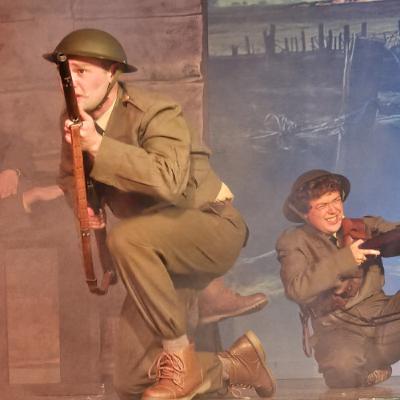
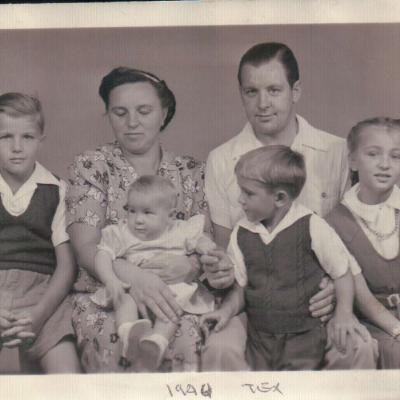

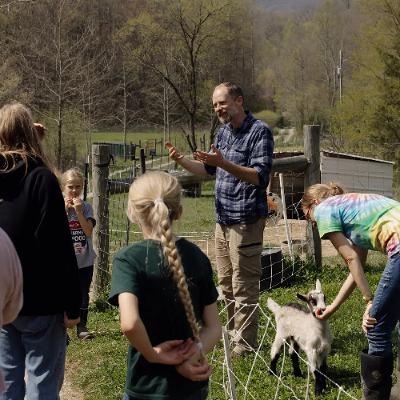
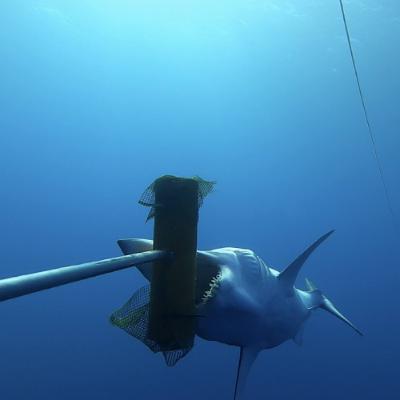
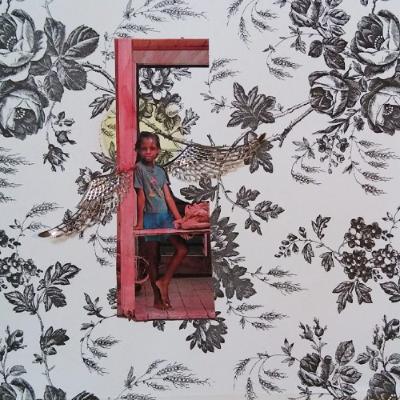
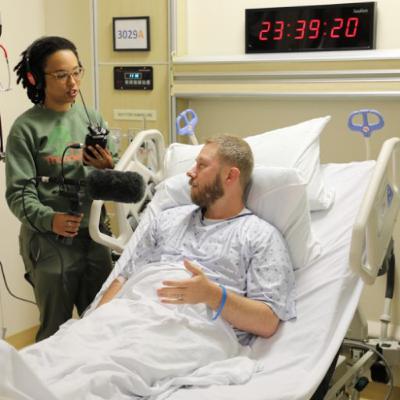
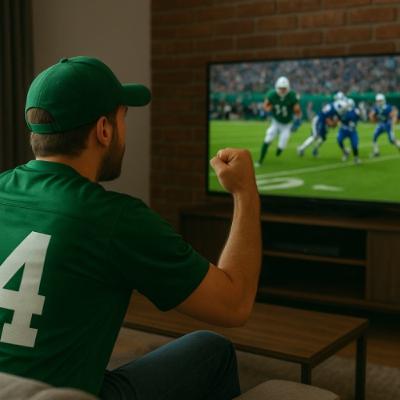
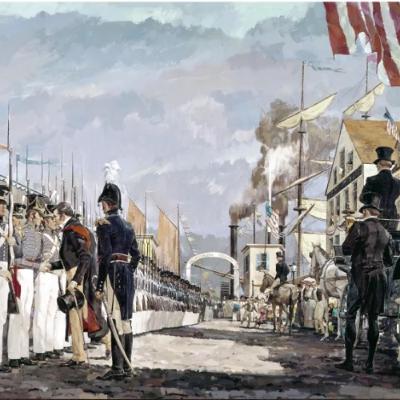


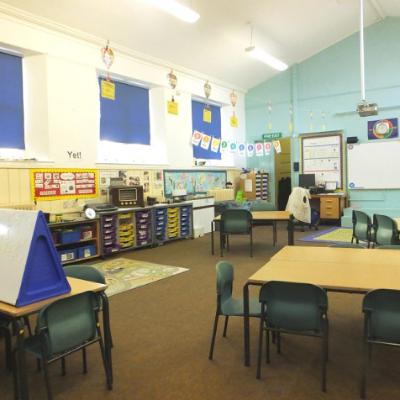
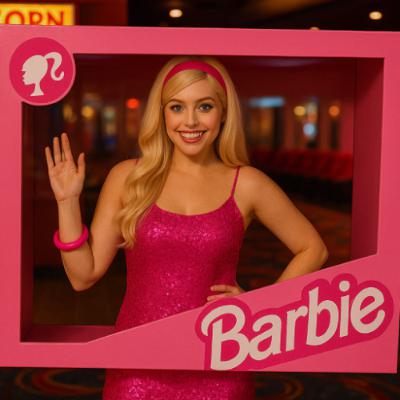
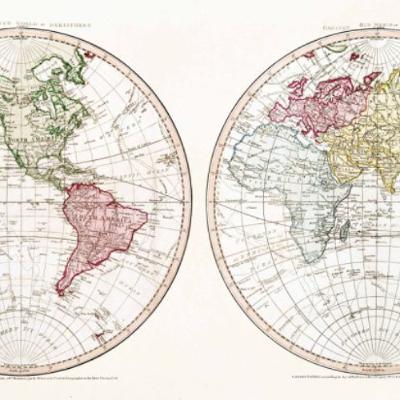
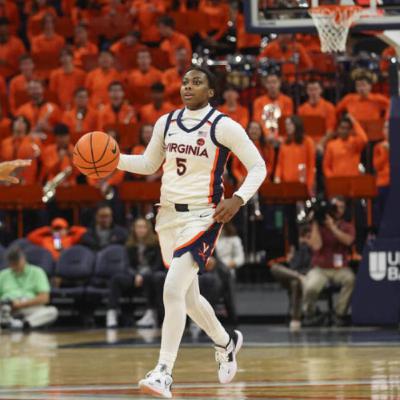
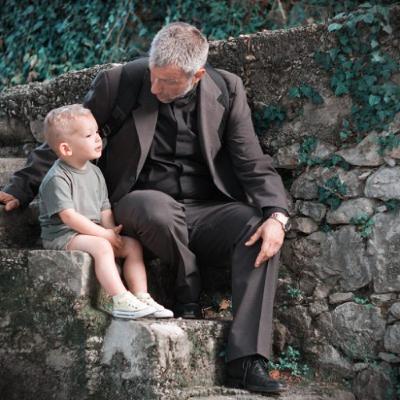

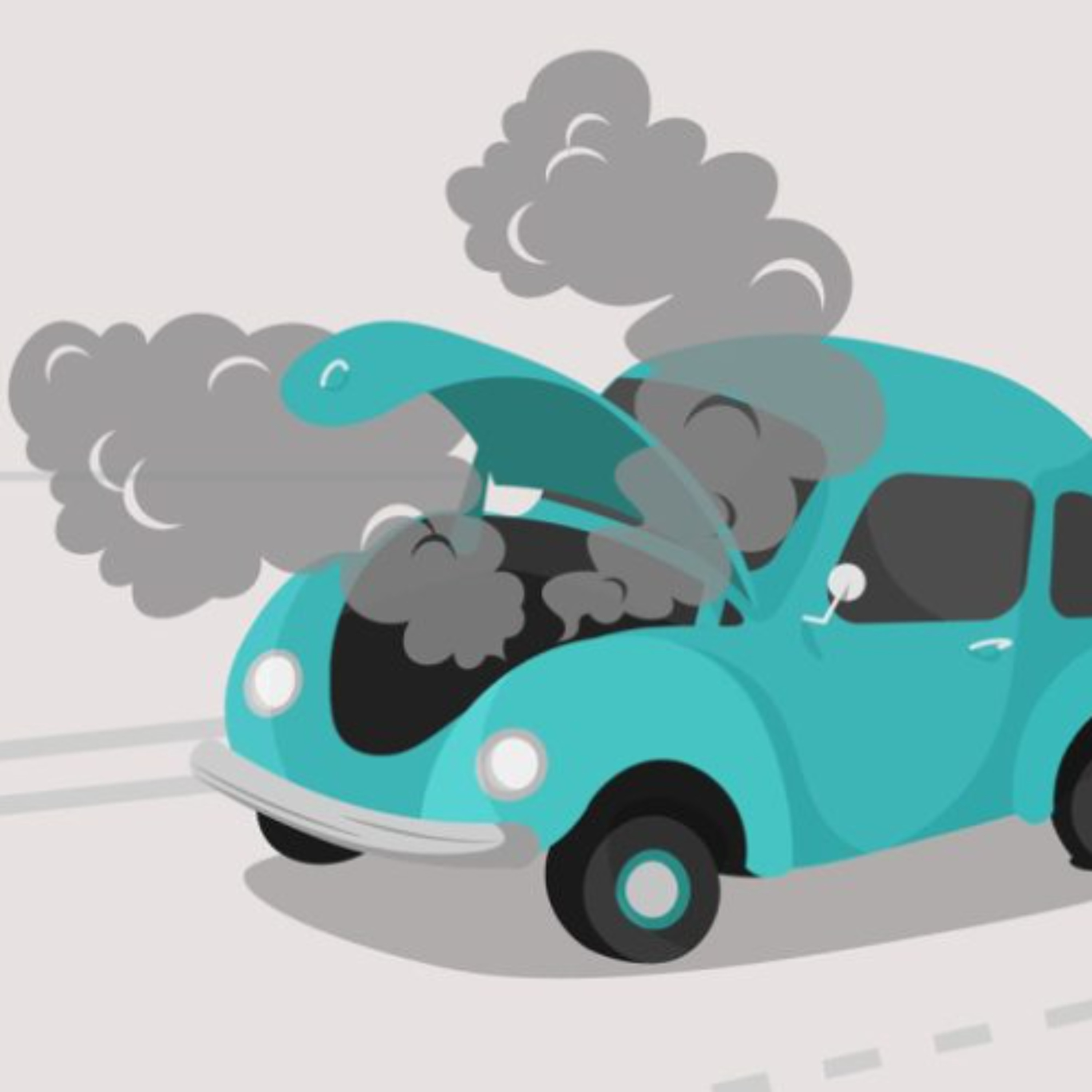
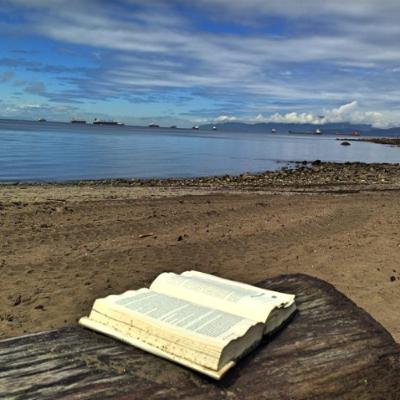




Amazing episode!